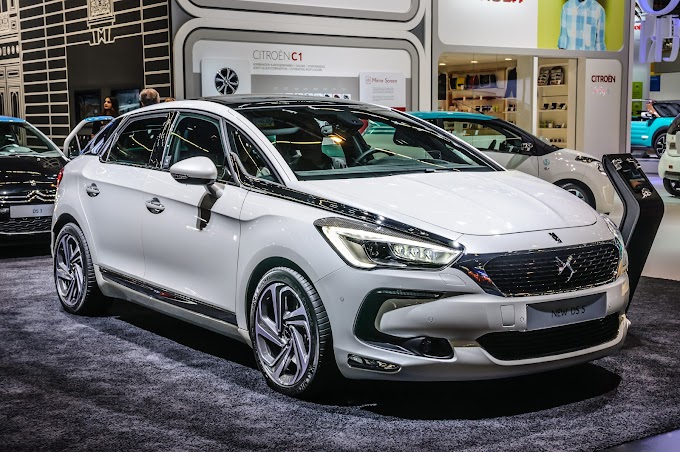Do hybrid cars really combine efficiency and sustainability?
%20(1).png)
The Rise of Hybrid Cars
The rise of
hybrid cars can be attributed to the growing concern for environmental
sustainability and the need for more fuel-efficient vehicles. Here are some key
points to consider regarding the increasing popularity of hybrid cars:
- Environmental
Awareness:
- Consumers are becoming more
environmentally conscious and are seeking out ways to reduce their carbon
footprint. Hybrid cars, with their dual engines (electric and gasoline),
offer a cleaner alternative to traditional gas-powered vehicles.
- Government
Incentives:
- Many governments around the
world are providing incentives for purchasing hybrid cars, such as tax
breaks, rebates, and access to HOV lanes. These incentives make hybrid
cars more appealing and affordable for consumers.
- Advancements
in Technology:
- The technology behind hybrid
cars has improved significantly in recent years, making them more
reliable, cost-effective, and fuel-efficient. This has boosted consumer
confidence in choosing hybrid vehicles over conventional ones.
- Fuel
Efficiency:
- Hybrid cars are known for
their superior fuel efficiency compared to traditional gasoline vehicles.
By combining the use of electric motors with gasoline engines, hybrid
cars can achieve better mileage and reduce fuel consumption.
- Growing
Variety:
- Auto manufacturers are
expanding their hybrid car offerings, providing consumers with a wider
range of options to choose from. This variety caters to different
preferences and budgets, further driving the popularity of hybrid cars.
Overall,
the rise of hybrid cars is a clear indication of the shifting automotive
industry towards more sustainable and efficient modes of transportation. As
technology continues to advance and environmental concerns grow, it is expected
that the popularity of hybrid cars will only continue to increase in the coming
years.
Environmental Benefits of Hybrid Cars
- Reduce
Greenhouse Gas Emissions:
- Hybrid cars combine a
traditional gasoline engine with an electric motor, resulting in reduced
fuel consumption. This decreased use of gasoline leads to lower emissions
of pollutants like carbon dioxide, a major contributor to climate change.
- Energy
Efficiency:
- Hybrid cars are more
energy-efficient than conventional vehicles since they can switch between
the gasoline engine and electric motor based on driving conditions. This
efficiency helps in reducing overall fuel consumption and decreases the
reliance on fossil fuels.
- Lower
Fuel Consumption:
- The dual-power source in
hybrid cars enables them to use less gasoline than traditional vehicles.
This reduced fuel consumption not only saves money for the owner but also
minimizes the demand for non-renewable resources.
- Regenerative
Braking Technology:
- Hybrid cars use regenerative
braking systems that convert kinetic energy into electric energy, which
is then stored in the car's battery. This technology helps in maximizing
fuel efficiency and reduces the amount of energy wasted during braking.
- Noise
Pollution Reduction:
- Electric motors in hybrid cars
operate quietly compared to internal combustion engines found in
conventional vehicles. This reduction in noise pollution benefits both
the environment and the communities where hybrid cars are driven.
- Conservation
of Natural Resources:
- By consuming less fuel and
promoting energy efficiency, hybrid cars contribute to the conservation
of natural resources. This sustainable approach helps in preserving
fossil fuels and reduces the environmental impact of resource extraction
processes.
Cost and Maintenance of Hybrid Cars
- Hybrid cars typically come with
a higher price tag compared to traditional gasoline-powered vehicles. The
cost of purchasing a hybrid car can be attributed to the advanced
technology used in their design, including the electric motor, battery,
and regenerative braking system.
- Despite the initial higher
cost, hybrid cars offer long-term savings in fuel expenses. The
combination of gasoline and electric power allows hybrid vehicles to
achieve better fuel efficiency, ultimately translating to savings at the
pump for the owner.
- Maintenance costs for hybrid
cars are often comparable to those of conventional vehicles. However,
hybrid cars may require specialized maintenance due to their dual power
systems. It is essential for owners to follow the manufacturer's recommendations
for servicing to ensure the longevity and efficiency of the vehicle.
- The cost of replacing a hybrid
car's battery can be a concern for some potential buyers. However,
advancements in battery technology have led to increased durability and
longer lifespans for hybrid batteries. Many hybrid manufacturers offer
warranties on their battery systems to provide peace of mind to owners.
- Overall, the cost and
maintenance of hybrid cars can be justified by the long-term savings in
fuel expenses and the environmental benefits of reduced emissions. As
technology continues to improve, hybrid cars are becoming a more
financially viable and sustainable option for eco-conscious consumers.
Advancements in Hybrid Technology
- Improvements in battery
technology have been a significant factor driving advancements in hybrid
cars. Lithium-ion batteries are now widely used in hybrids due to their
higher energy density and longer lifespan compared to traditional
nickel-metal hydride batteries.
- Regenerative braking systems
are increasingly sophisticated in hybrid vehicles, allowing for more
efficient energy capture and storage. This technology converts kinetic
energy into electrical energy, which is then stored in the battery for
later use, reducing fuel consumption and emissions.
- The integration of smart power
management systems has also enabled hybrid cars to optimize the use of
electric power, gasoline, or a combination of both based on driving
conditions, maximizing fuel efficiency while maintaining performance.
- Many newer hybrid models offer
plug-in capabilities, allowing users to charge the battery from an
external power source. This feature extends the electric-only range of the
vehicle, reducing the overall reliance on the internal combustion engine.
- Vehicle-to-vehicle and
vehicle-to-infrastructure communication systems are being implemented in
hybrid cars to enhance overall efficiency. These systems enable real-time
data sharing, helping drivers make informed decisions to minimize energy
consumption and reduce environmental impact.
- The development of lightweight
materials and aerodynamic designs has helped improve the overall
efficiency of hybrid vehicles. By reducing weight and improving
aerodynamics, manufacturers can enhance fuel economy and optimize the
performance of hybrid powertrains.
- Advances in software and
digital technologies have allowed for more sophisticated control systems
in hybrid cars. These systems constantly monitor and adjust various
parameters, such as engine output and battery usage, to ensure the most
efficient operation of the vehicle.
Government Incentives and Policies
- Governments across the globe
have implemented various incentives and policies to promote the adoption
of hybrid cars.
- Tax Incentives: Many countries offer tax
incentives to hybrid car owners, including tax credits, rebates, and lower
registration fees. These financial benefits encourage individuals to
choose hybrid vehicles over traditional gasoline cars.
- Fuel Efficiency Standards: Some governments have set
stringent fuel efficiency standards that automakers must meet, pushing
them to produce more hybrid and electric vehicles to comply with
regulations.
- Emission Regulations: Emission regulations play
a crucial role in promoting hybrid cars. Governments often impose
restrictions on carbon emissions, incentivizing consumers to opt for
hybrid vehicles that produce fewer emissions.
- Subsidies: Governments may offer
subsidies to both consumers and manufacturers of hybrid cars to make them
more affordable and increase their market penetration.
- Infrastructure Development: Governments invest in
infrastructure development to support hybrid cars, such as building more
charging stations for plug-in hybrid vehicles, making it more convenient
for consumers to switch to hybrids.
- Public Awareness Campaigns: Many governments run
public awareness campaigns to educate consumers about the benefits of
hybrid cars, influencing their purchasing decisions and promoting
sustainability.
By
implementing these incentives and policies, governments aim to accelerate the
transition towards more sustainable transportation options, reduce greenhouse
gas emissions, and lessen the dependence on fossil fuels.
Charging Infrastructure for Hybrid Cars
- Hybrid cars require a charging
infrastructure that supports their dual power sources. This includes both
traditional gasoline refueling stations and electric charging stations.
- Owners of hybrid cars need
access to charging stations to ensure they can operate efficiently on
electric power when needed.
- Public charging stations are
becoming more widespread, with many cities and businesses investing in
their installation to support the growing number of hybrid vehicles on the
road.
- Home charging stations are also
popular among hybrid car owners, offering convenience and cost savings by
allowing them to charge their vehicles overnight.
- The availability of
fast-charging stations is crucial for hybrid car drivers who need to
quickly top up their electric batteries while on the go.
- The development of a robust
charging infrastructure is essential to encourage more consumers to switch
to hybrid cars and reduce their overall environmental impact.
- Governments and private
organizations play a key role in expanding the charging infrastructure to
support the adoption of hybrid cars and promote sustainable transportation
options.
The Impact of Hybrid Cars on the Oil Industry
- Hybrid cars have resulted in a
reduction in the demand for traditional petrol and diesel fuel.
- This decrease in fuel
consumption has led to a decrease in the dependency on oil imports.
- Oil companies are diversifying
their portfolios to include alternative energy sources due to the
increasing popularity of hybrid vehicles.
- The shift towards hybrid cars
has prompted oil companies to invest in renewable energy technologies such
as solar and wind power.
- Some oil companies are
exploring partnerships with electric vehicle manufacturers to adapt to the
changing market trends.
- The oil industry is facing
challenges in forecasting demand and refining strategies due to the
increasing market share of hybrid cars.
- Hybrid vehicles are driving
innovation in the automotive industry, leading to advancements in battery
technology and sustainable energy solutions.
- The evolving landscape of the
automotive sector is compelling oil companies to reevaluate their business
models and long-term strategies.
- As hybrid cars continue to gain
market acceptance, the oil industry must adapt to remain competitive and
sustainable in a changing market environment.
Future Developments in Hybrid Car Technology
- The future of hybrid car
technology is promising, with advancements aimed at enhancing efficiency
and sustainability.
- One significant area of
development is the improvement of battery technology. Manufacturers are
working on developing more efficient and longer-lasting batteries for
hybrid vehicles.
- Integration of renewable energy
sources such as solar panels into hybrid cars is also being explored. This
innovation could potentially increase the range and reduce dependence on
conventional energy sources.
- Intelligent energy management
systems are being implemented to optimize the use of electric and gasoline
power in hybrid cars. These systems aim to maximize efficiency and reduce
emissions further.
- Continual research is being
conducted to enhance regenerative braking systems in hybrid cars.
Improvement in this area can increase energy capture during braking,
contributing to overall energy efficiency.
- The concept of wireless
charging for hybrid vehicles is under development. This technology could
make charging more convenient and accessible for hybrid car owners.
- Vehicle-to-vehicle
communication systems are being considered to improve traffic flow and
reduce energy consumption. Hybrid cars incorporating this technology could
communicate with each other to optimize driving routes and speeds.
- Lightweight materials and
aerodynamic design principles are being utilized to reduce the overall
weight of hybrid vehicles. This approach can enhance fuel
efficiency and performance.
- Artificial intelligence and
machine learning are also being integrated into hybrid car systems to
analyze driving patterns and optimize power usage automatically.
- Collaborations between
automakers, technology companies, and research institutions play a crucial
role in driving innovation in hybrid car technology. These partnerships
facilitate the exchange of ideas and resources to accelerate advancements
in the field.
Challenges and Limitations of Hybrid Cars
- Hybrid cars typically cost more
upfront than traditional gasoline-powered vehicles due to the advanced
technology and components required for their hybrid systems.
- The maintenance and repair
costs for hybrid cars can also be higher than those for conventional
vehicles, as specialized training and parts are often required.
- The battery packs in hybrid
cars can be expensive to replace when they reach the end of their
lifespan, which can be a significant cost for owners.
- Hybrid cars may have limited
electric-only range, depending on the model and battery capacity, which
can be a challenge for drivers who want to rely more on electric power.
- The performance of hybrid cars
may not match that of some traditional gasoline-powered vehicles,
particularly in terms of acceleration and top speed.
- Cold weather can affect the
efficiency of hybrid cars, as low temperatures can reduce battery
performance and fuel economy.
- The infrastructure for charging
hybrid cars is still developing in many areas, which can make it
challenging for owners to find convenient and reliable charging stations.
- Hybrid cars may have limited
towing capacity compared to some larger gasoline-powered vehicles, which
can be a limitation for drivers who frequently tow heavy loads.
Overall,
while hybrid cars offer many benefits in terms of efficiency and
sustainability, they also come with challenges and limitations that potential
buyers should consider before making a purchase.
Consumer Adoption and Market Trends
- Consumer adoption of hybrid
cars has been steadily increasing in recent years due to a growing
awareness of environmental issues and a desire for more fuel-efficient
vehicles.
- Government incentives and
regulations promoting the use of hybrid cars have also played a
significant role in driving consumer adoption.
- Consumers are attracted to
hybrid cars not only for their fuel efficiency but also for their lower
emissions and overall sustainability.
- Market trends indicate a shift
towards electric vehicles (EVs), but hybrids remain popular due to their
versatility and convenience, especially in areas with limited charging
infrastructure.
- Automakers are continuing to
innovate and improve hybrid technology to meet consumer demand for more
efficient and eco-friendly vehicles.
- The market for hybrid cars is
expected to grow as advancements in battery technology reduce costs and
improve performance, making hybrids even more competitive with traditional
gasoline vehicles.
- In the future, consumer
adoption of hybrids is likely to increase further as more people
prioritize sustainability and seek cleaner transportation options.

.png)

.png)
.png)
.png)
.png)
